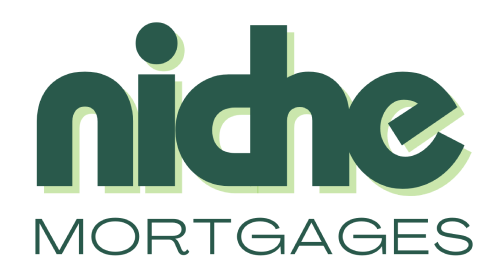When it comes to securing a small business mortgage, collateral plays a critical role in the approval process. For lenders, collateral serves as a safeguard, providing assurance that they can recover their funds if the borrower is unable to repay the loan. For borrowers, understanding the importance of collateral and how it works can help you prepare for the loan application process and increase your chances of approval. Here’s an in-depth look at the role of collateral in small business mortgages.
What is Collateral?
Collateral is an asset that a borrower pledges to a lender as security for a loan. In the context of small business mortgages, collateral typically involves property, equipment, or other business assets. If the borrower defaults on the loan, the lender has the right to seize and sell the collateral to recover the remaining debt. This reduces the lender’s risk and makes them more likely to approve the loan.
Why Collateral Matters for Small Business Mortgages
Mitigating Risk for Lenders
Small business mortgages are often seen as higher-risk loans due to fluctuating business revenues. Collateral provides lenders with a safety net, ensuring they can recoup their funds even if the business encounters financial difficulties.
Increases Borrower Credibility
Offering valuable collateral signals to the lender that the borrower is serious and committed to repaying the loan. It demonstrates a willingness to share the risk, which can improve the likelihood of loan approval.
Larger Loan Amounts
The value of the collateral can influence the size of the loan a lender is willing to offer. High-value assets, such as real estate or specialized equipment, can help secure larger loan amounts.
Improved Loan Terms
Collateral-backed loans often come with better terms, such as lower interest rates and more flexible repayment schedules, compared to unsecured loans.
Common Types of Collateral for Small Business Mortgages
Lenders may accept various types of collateral depending on the loan amount, the borrower’s business type, and the lender’s policies. Common forms of collateral include:
- Real Estate: Commercial or residential properties owned by the borrower are among the most widely accepted types of collateral due to their high and stable value.
- Equipment: Business machinery, vehicles, or specialized tools can be used as collateral, especially for industries like construction or manufacturing.
- Inventory: Retailers or wholesalers may use their inventory as collateral to secure funding for business expansion or operations.
- Accounts Receivable: Future payments owed to the business by customers can also serve as collateral.
- Personal Assets: In some cases, borrowers may pledge personal assets, such as their home or savings, to secure a loan for their business.
How Lenders Evaluate Collateral
Lenders carefully evaluate the collateral to determine its suitability and value. Key considerations include:
- Market Value: The lender assesses the current market value of the asset, factoring in depreciation or market conditions.
- Liquidity: Lenders prefer collateral that can be easily converted into cash in case of default, such as real estate or vehicles.
- Loan-to-Value Ratio (LTV): This ratio compares the loan amount to the value of the collateral. A lower LTV means the collateral’s value exceeds the loan amount, reducing the lender’s risk.
- Ownership: The borrower must provide proof of ownership for the collateral to ensure they have the legal right to pledge it.
Tips for Borrowers Using Collateral
If you’re planning to use collateral for a small business mortgage, here’s how to prepare:
- Assess Your Assets: Take inventory of your business and personal assets to determine which can be used as collateral. Focus on assets with high market value and liquidity.
- Get a Professional Valuation: Have your collateral appraised by a professional to establish its fair market value. This can help you negotiate better loan terms.
- Understand the Risks: Be aware that defaulting on the loan could result in the loss of your pledged collateral. Ensure you’re confident in your ability to meet repayment obligations.
- Maintain Documentation: Keep detailed records of your assets, including ownership and value, to streamline the application process.
Alternatives to Collateral
If you lack sufficient collateral, there are other ways to improve your chances of securing a small business mortgage:
- Personal Guarantee: Agree to personally repay the loan if the business defaults.
- Strong Financials: Demonstrating consistent revenue, good credit, and a solid business plan can sometimes offset the need for collateral.
Ready to Secure a Small Business Mortgage?
Collateral is essential for small business mortgages, serving as security for the lender and enabling borrowers to access larger loans with better terms. Common collateral includes real estate, equipment, inventory, and accounts receivable. Proper preparation, valuation, and understanding of the risks are key to leveraging collateral effectively.
If you’re looking for a small business mortgage and need guidance on how to use collateral effectively, Contact Niche Mortgages today. Our experts are here to help you navigate the process and secure the funding you need to grow your business!
About the Author

Jonathan Yien
Jonathan Yien is a seasoned mortgage broker at DLC Clear Trust Mortgages with a rich background in financial advising from his time at TD Canada Trust. He is dedicated to helping clients achieve their financial and homeownership goals.

